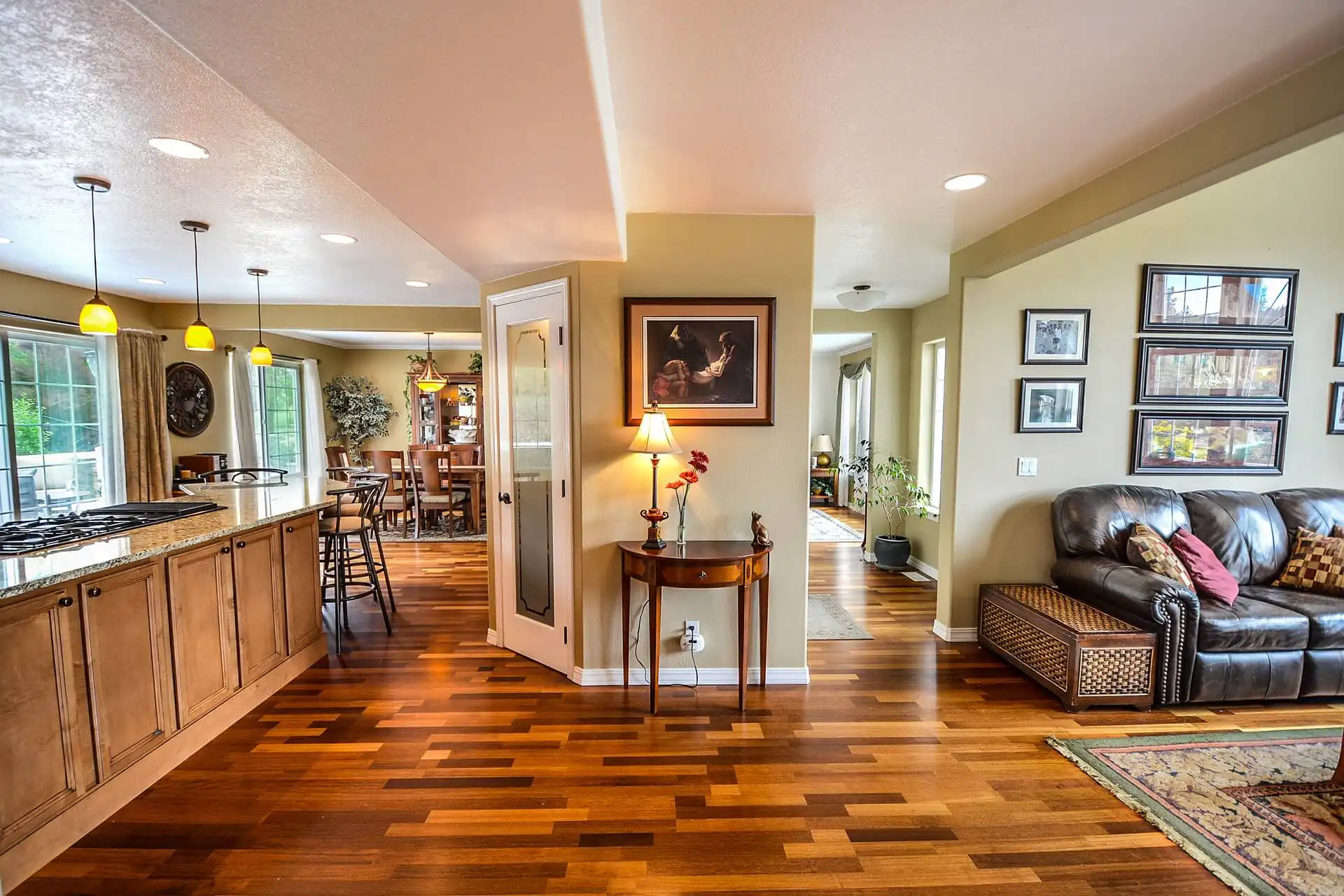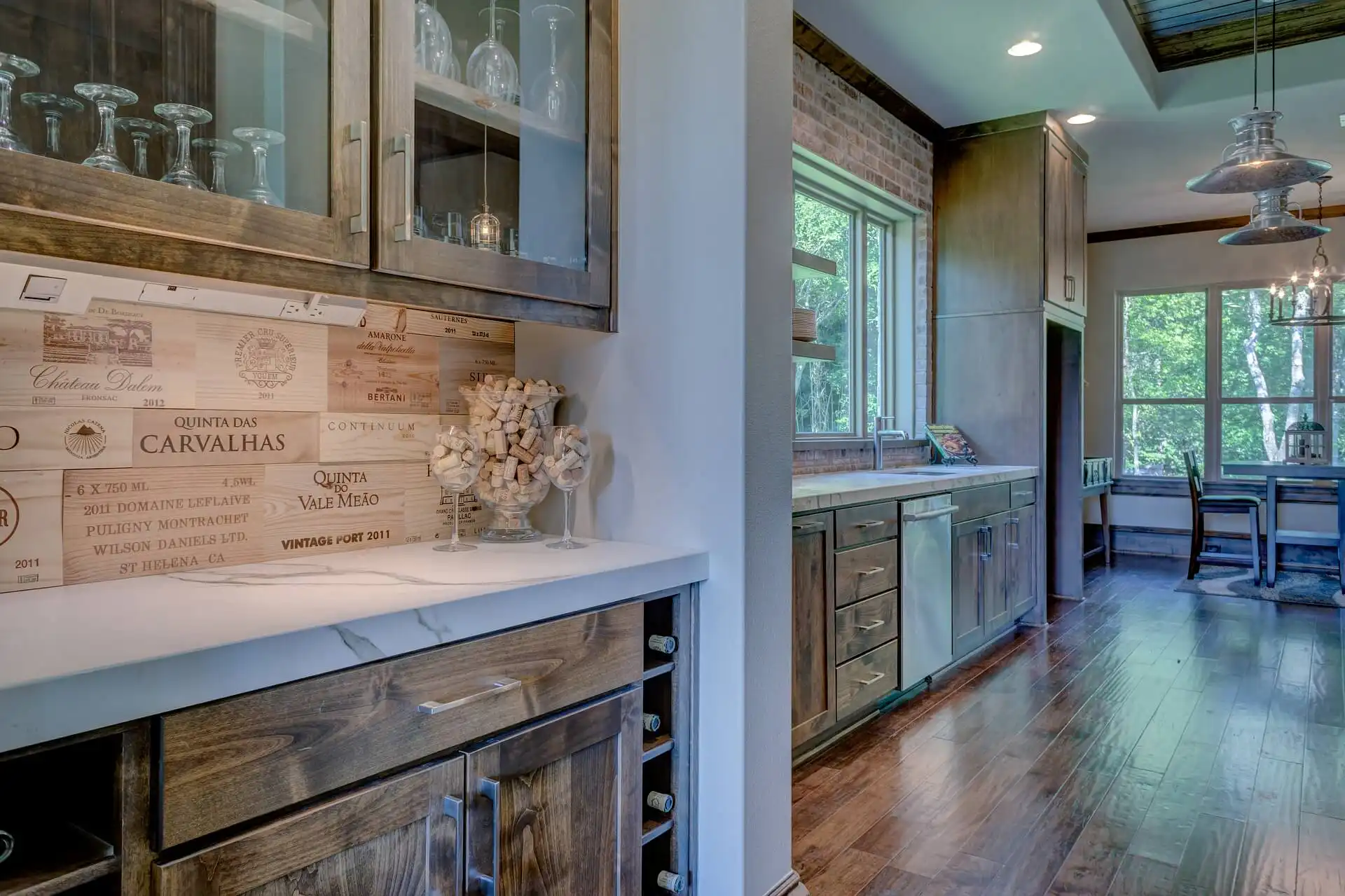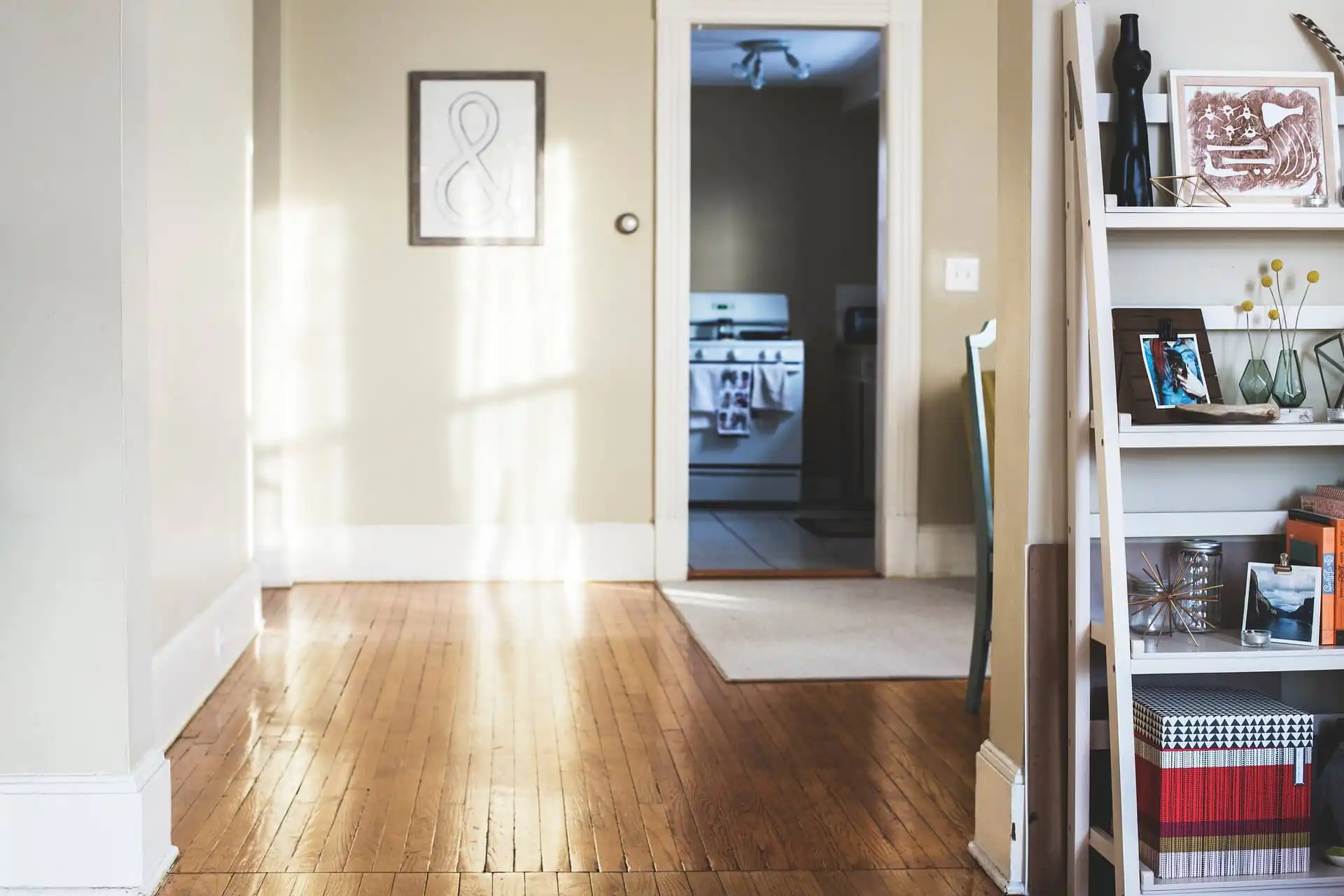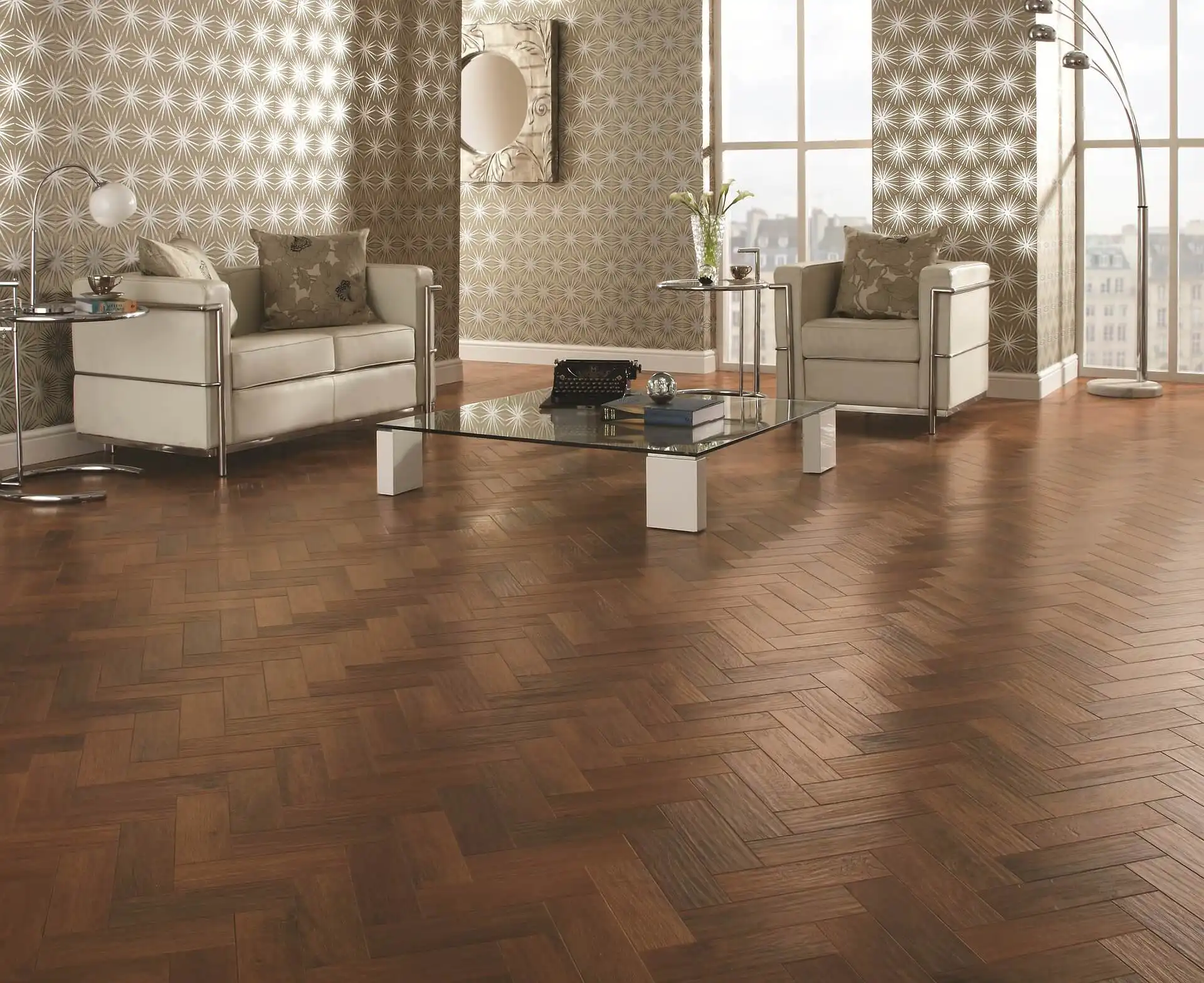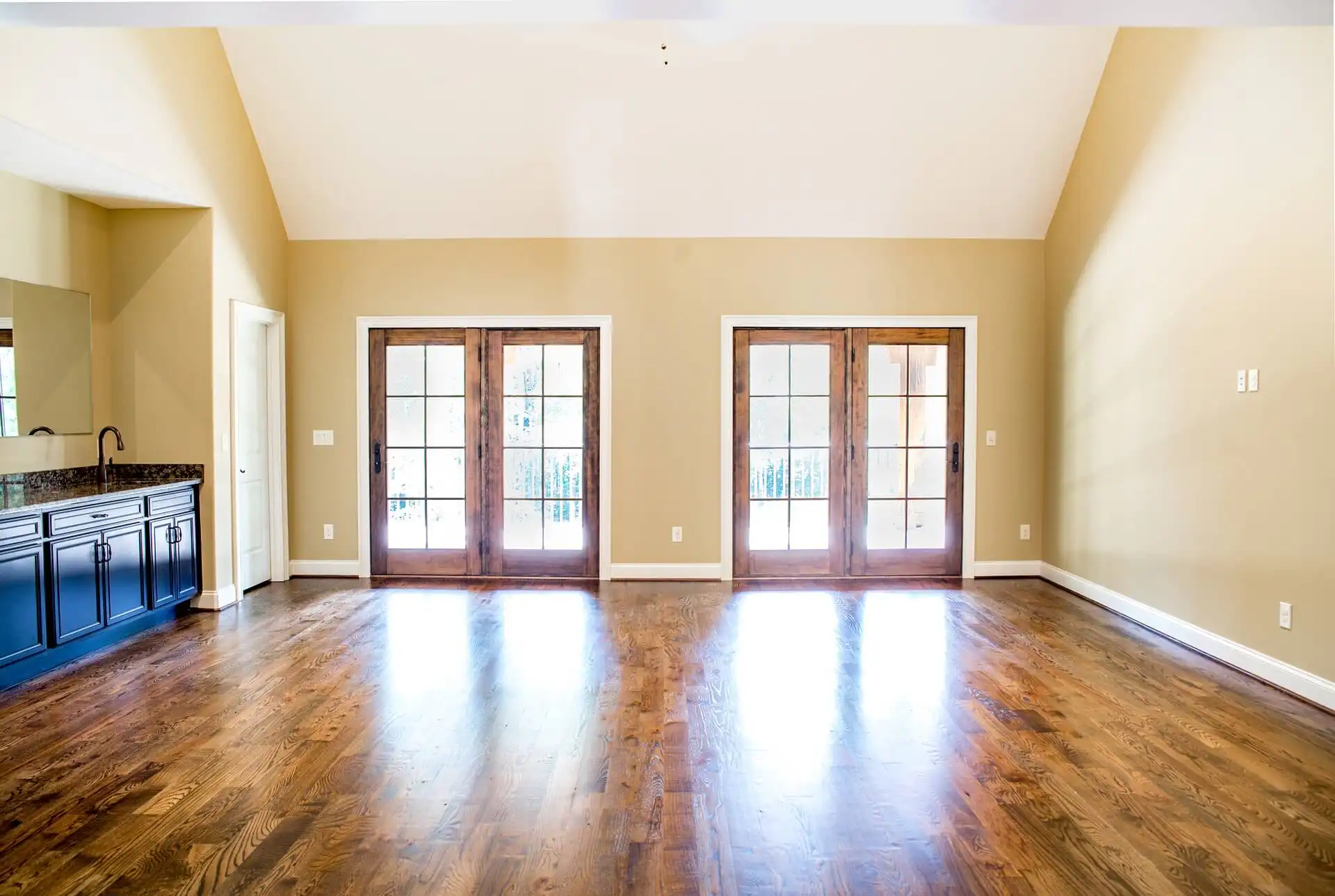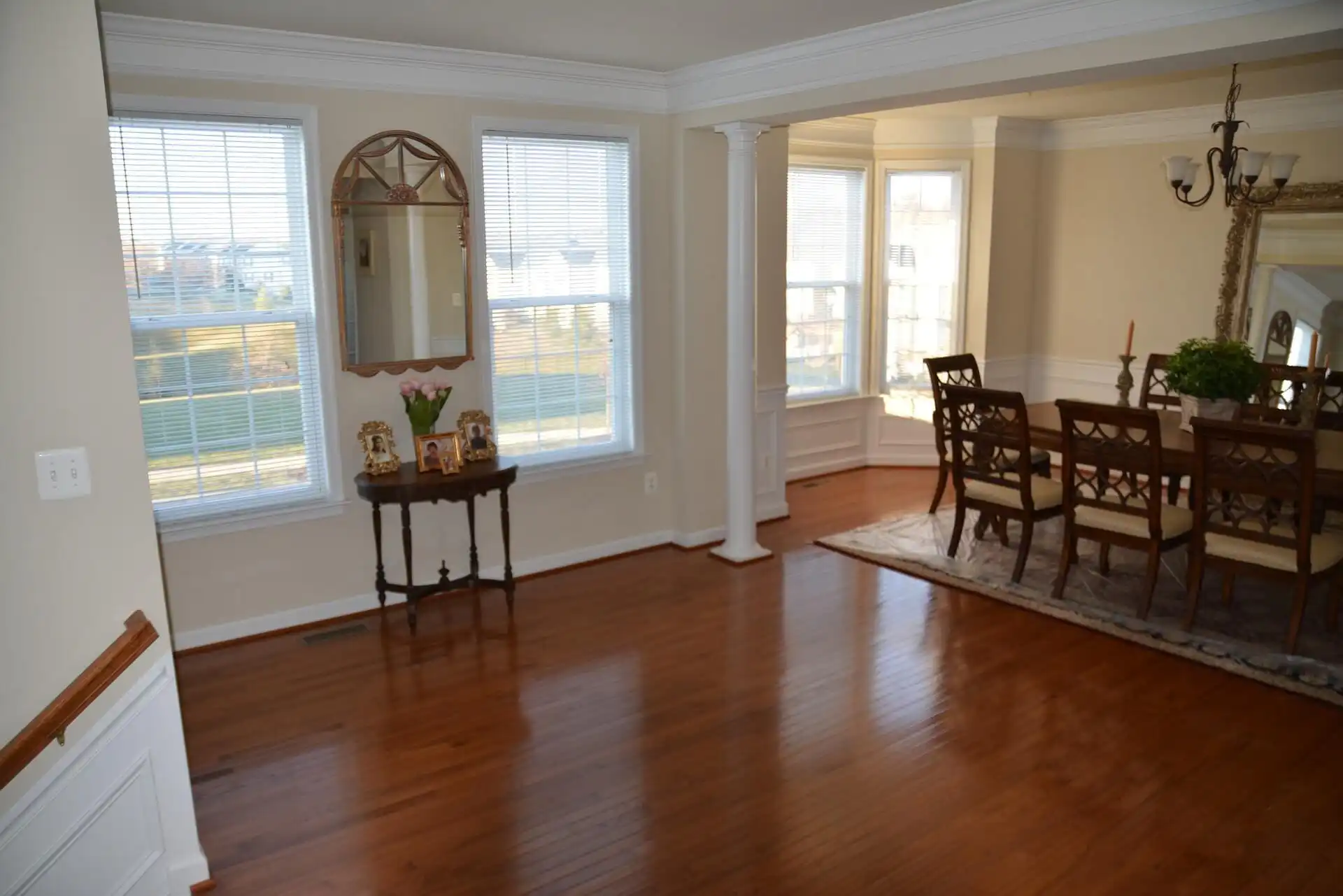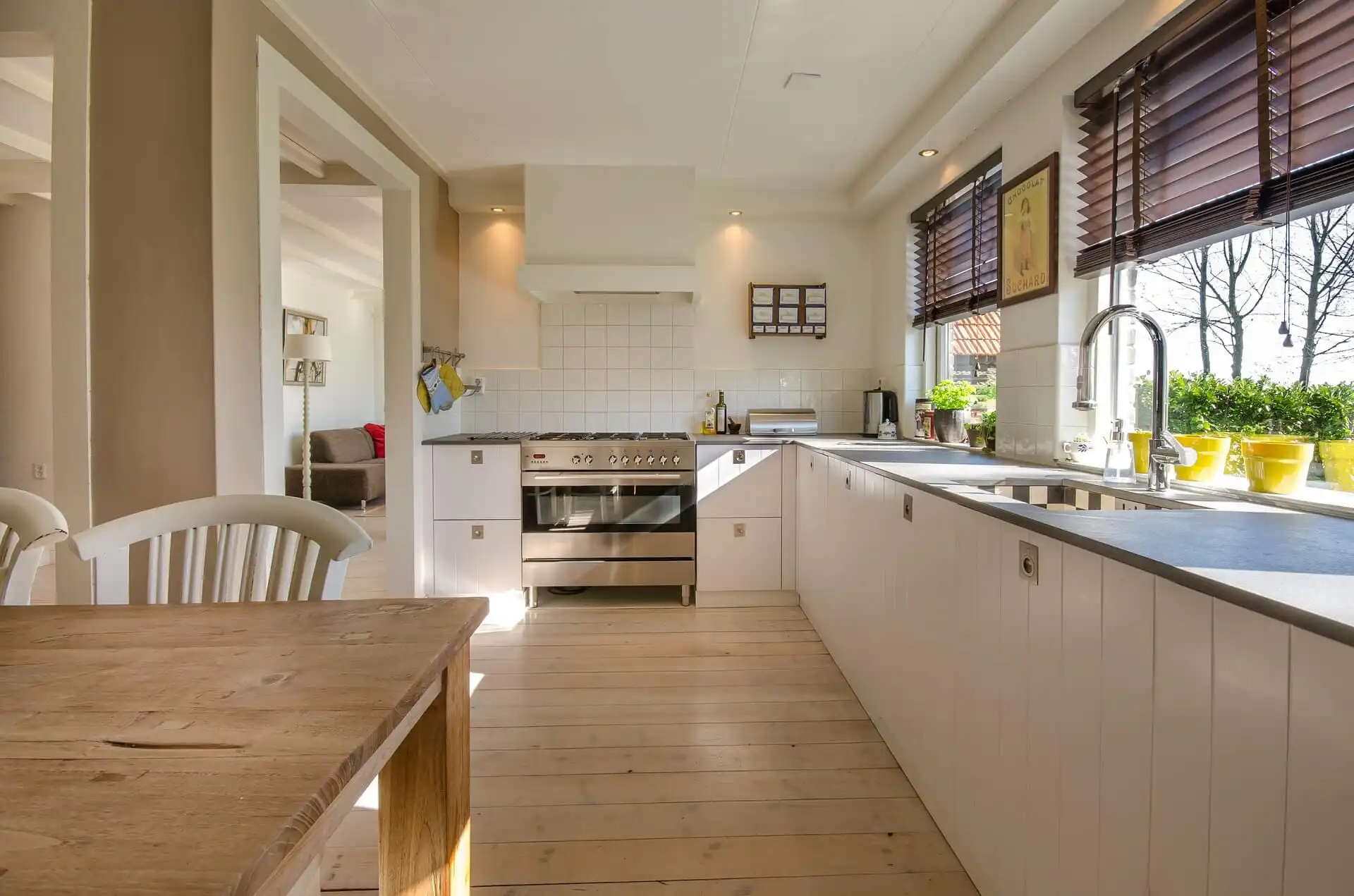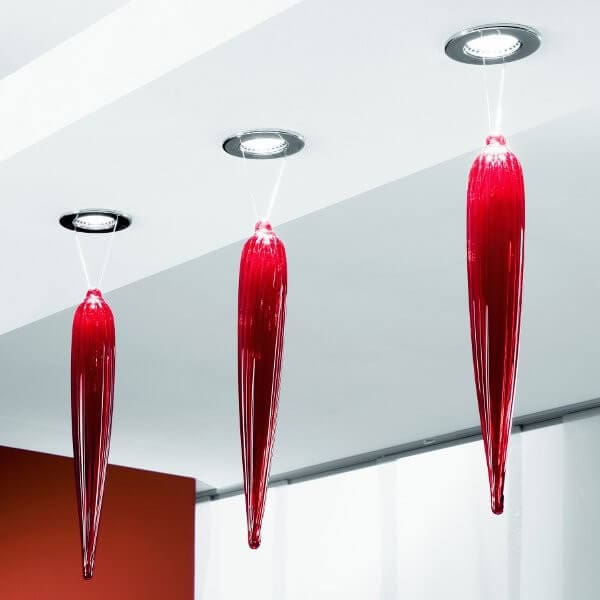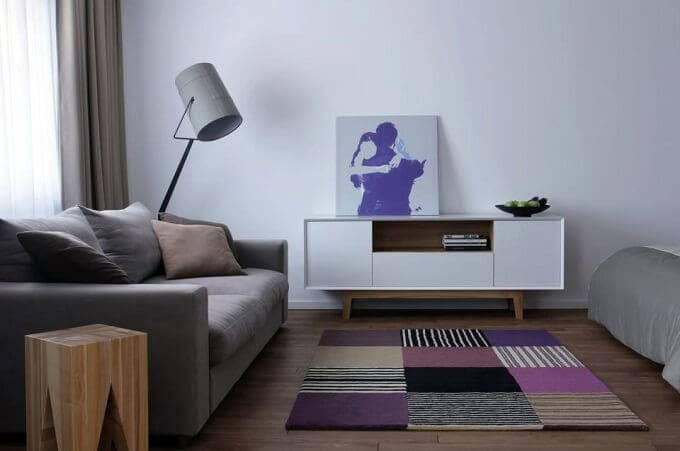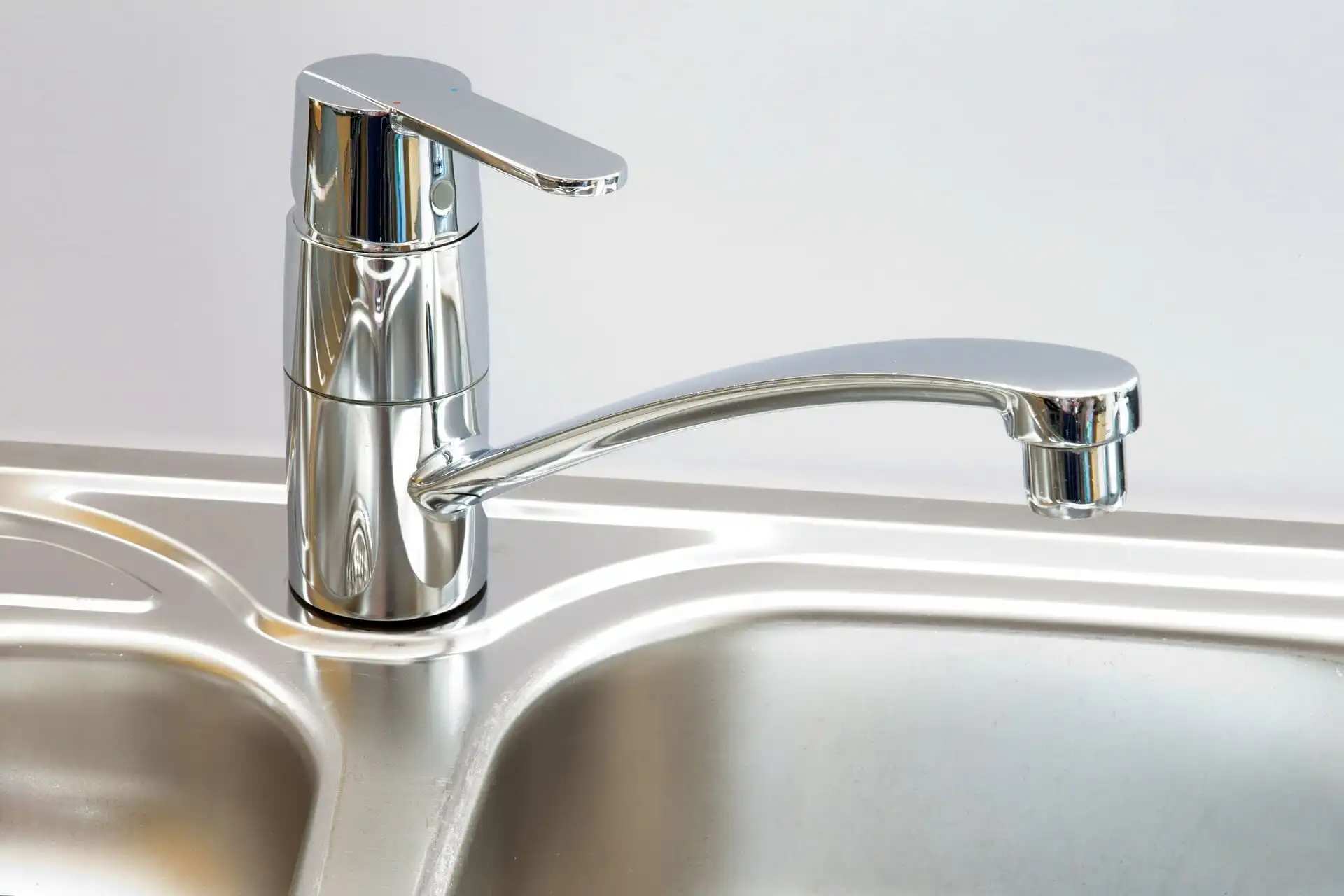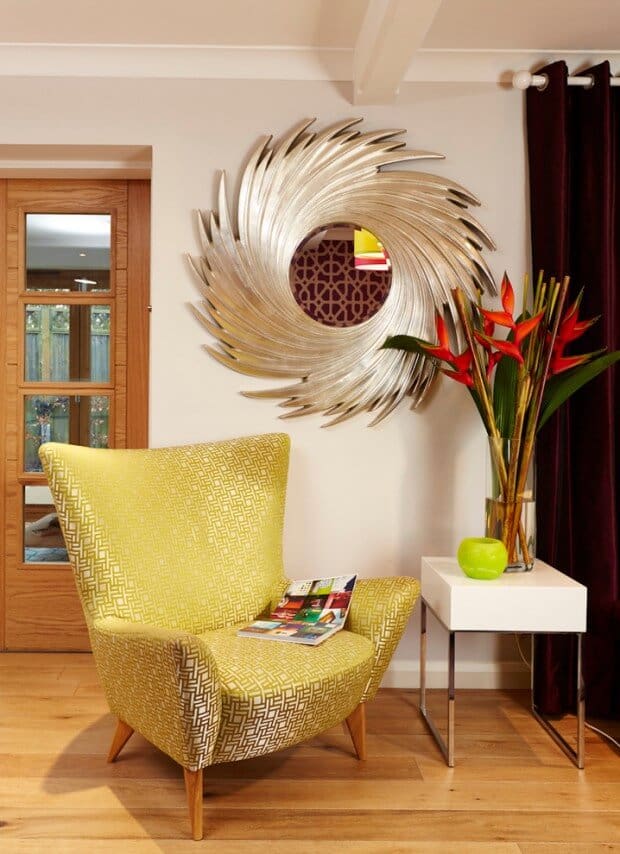When deciding on new flooring for your home, be sure to look into hardwood floors. They have long been a favourite choice of homeowners, and for good reason. They are a classic choice that never goes out of style while also offering a warm and natural look.
Hardwood flooring is also very durable and can last for years when it is properly cared for. Luckily this is easy to do, but it is still important to find the right kind of hardwood flooring for each space. Different types offer different benefits, so don’t be afraid to do your research and ask a lot of questions when picking it out. There are also a few important considerations to keep in mind when browsing.
Type of Wood Flooring
There are two main types of wood flooring available. The first is solid hardwood. This is a single piece plank that is formed from a wooden log. A groove and tongue is cut into the plank as well in order to allow them to latch together with ease. This is done on both the long and short edges of the plank. Solid wood is available as both prefinished and unfinished planks that come in a variety of sizes.
The second kind of flooring is engineered wood. This kind of wood is made up of multiple layers of plywood and other materials with a top layer of hardwood. The planks come in a wide range of thickness in order to best suit your home’s needs.
Both of these flooring options offer the rich appearance of wood but where you might notice the difference is in the composition of the floor. Solid wood is susceptible to the humidity of the room, meaning that it might expand and contract accordingly. It is usually safely installed on the ground floor and the upper levels of the house but might not be advisable for the basement. Engineered wood flooring tends to be more stable due to its construction. This would be the better option for bathrooms and basements.
Choice of Wood Species
There are a number of different kinds of wood used in flooring. If durability is your concern though, then hardwood is the way to go. Red oak and white oak are the most widely used kinds and offer a good level of durability, but if you are looking for something harder, than maple, walnut, and hickory are the way to go. There are also other exotic woods available to select from but budgets might get in the way of these types of wood. It it is a high traffic area of the house it might be worth investing in harder woods.
Grain, Color and Appearance
When looking for wood for the flooring, it is important to have an idea of what you want the overall look to achieve. For instance, if you want a rustic space it would be best to look into woods with a defined grain and maybe use a distressed finish. Formal spaces might be better suited for dark finishes in order to increase the overall drama of the space. Whatever you are looking for, you can find with a little bit of hunting. The overall species of the floor is a good place to start when trying to achieve this look, but finishes will also go a long way to tie the whole thing together.
Type of Finish
The type of finish used on hardwood flooring will have a huge effect on the final overall appearance of the floor. You can completely change the look of a species with different finishes. For instance a maple floor will look dramatically different with a clear finish versus a hand-scraped, wire-brushed, or distressed finish. On top of that, there is matte, gloss, and european oil finishes to take into account. This will determine the overall sheen of the wood by the end. Many suppliers also offer pre-finished wood to make their customers’ lives easier.
Cost and Installation
The overall cost of wood flooring will depend on type, species and the finish. Generally depends solid prefinished will cost anywhere from $2.49 to $12.69 per square foot, while engineered prefinished wood flooring might range from $1.69 to $8.79. Installation costs will vary according to the size of the space.

